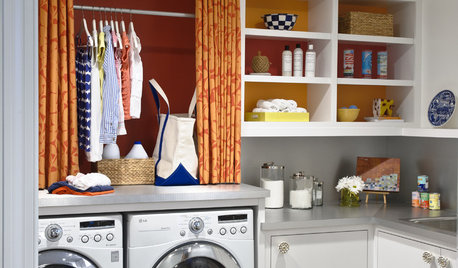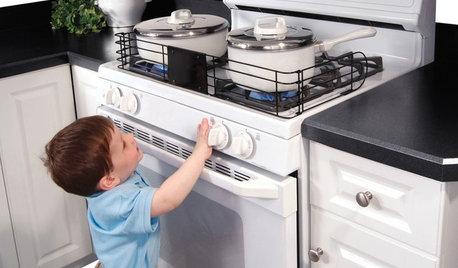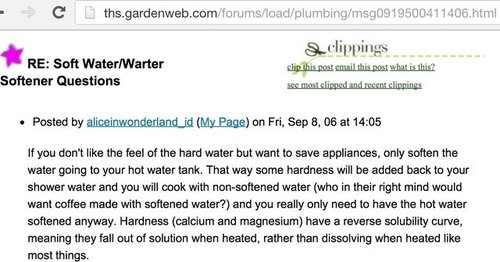Soften only hot water tank? Aliceinwonderland advice....
mdln
9 years ago
Related Stories

BATHROOM DESIGNDreaming of a Spa Tub at Home? Read This Pro Advice First
Before you float away on visions of jets and bubbles and the steamiest water around, consider these very real spa tub issues
Full Story
REMODELING GUIDESContractor Tips: Advice for Laundry Room Design
Thinking ahead when installing or moving a washer and dryer can prevent frustration and damage down the road
Full Story
HEALTHY HOMEHow to Childproof Your Home: Expert Advice
Safety strategies, Part 1: Get the lowdown from the pros on which areas of the home need locks, lids, gates and more
Full Story
MOST POPULARThanksgiving Tales: When the Turkey Tanks
Houzz readers prove adept at snatching victory from the jaws of entertaining defeat
Full Story
GREAT HOME PROJECTSHow to Switch to a Tankless Water Heater
New project for a new year: Swap your conventional heater for an energy-saving model — and don’t be fooled by misinformation
Full Story
SAVING WATER11 Ways to Save Water at Home
Whether you live in a drought-stricken area or just want to help preserve a precious resource, here are things you can do to use less water
Full Story
HEALTHY HOMEHow to Choose a Home Water Filtering System
Learn which water purification method is best for your house, from pitchers to whole-house setups
Full Story
GREEN BUILDINGHow to Harvest Rainwater for Your Garden
Conserve a vital resource and save money by collecting stormwater for irrigation in a barrel or tank
Full Story
LIFECool Architecture for Hot Summers
Sun-repelling roofs, shades, windows and the natural flow of air can help your home weather heat waves
Full Story
LIFEThe Top 5 Ways to Save Water at Home
Get on the fast track to preserving a valuable resource and saving money too with these smart, effective strategies
Full Story







User
mdlnOriginal Author
Related Professionals
Boise Plumbers · Channahon Handyman · Holden Kitchen & Bathroom Remodelers · Forest Hill Kitchen & Bathroom Remodelers · Auburn Kitchen & Bathroom Remodelers · Cleveland Kitchen & Bathroom Remodelers · Garden Grove Kitchen & Bathroom Remodelers · Glen Carbon Kitchen & Bathroom Remodelers · Las Vegas Kitchen & Bathroom Remodelers · Lynn Haven Kitchen & Bathroom Remodelers · Mooresville Kitchen & Bathroom Remodelers · Oklahoma City Kitchen & Bathroom Remodelers · Port Angeles Kitchen & Bathroom Remodelers · Thonotosassa Kitchen & Bathroom Remodelers · Cave Spring Kitchen & Bathroom RemodelersUser
mdlnOriginal Author
mdlnOriginal Author
mdlnOriginal Author
User
mdlnOriginal Author
User
User
mdlnOriginal Author
User
User
mdlnOriginal Author
User
mdlnOriginal Author
User
mdlnOriginal Author
ElizabethCampos